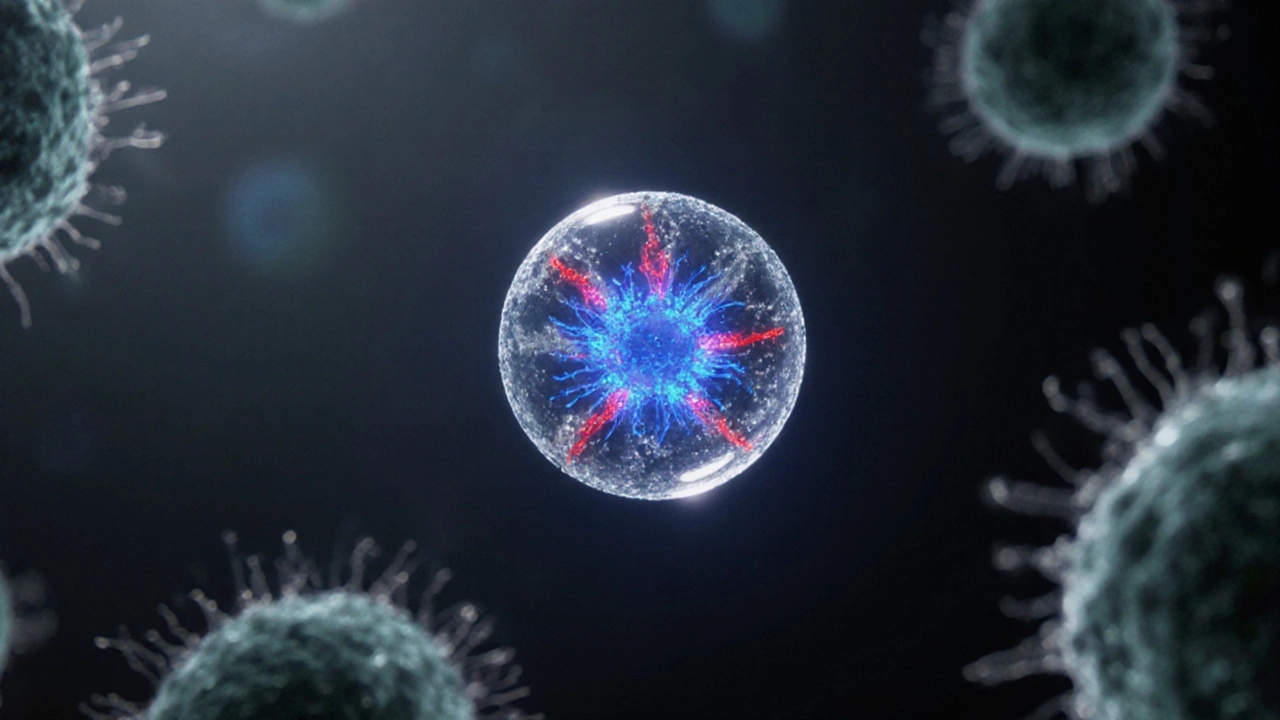When working with Cancer Biology, the study of how cancer starts, grows, and spreads in the body. Also known as oncological science, it pulls together genetics, cell behavior, and treatment strategies to explain why tumors form and how we can fight them.
A core piece of Tumor Microenvironment, the network of cells, blood vessels, and signaling molecules surrounding a tumor. This environment shapes how cancer cells grow and evade the immune system. When the microenvironment gets inflamed or supplies extra nutrients, tumors can become more aggressive. Understanding this relationship helps doctors choose therapies that target not just the cancer cells but also their surroundings.
Another pillar is Oncogenes, genes that, when mutated or over‑expressed, drive uncontrolled cell division. Oncogenes like KRAS or HER2 act like a stuck accelerator in a car, pushing cells to keep multiplying. Identifying which oncogenes are active in a tumor lets clinicians pick targeted drugs that block those signals, slowing or stopping growth.
Modern treatment often leans on Immunotherapy, therapies that boost the body’s own immune system to attack cancer cells. Checkpoint inhibitors, for example, release the brakes on immune cells, letting them recognize and destroy tumors. Immunotherapy doesn’t work the same for every cancer, but when it does, it can lead to lasting responses by reshaping the tumor microenvironment.
Metastasis is the process where cancer cells break away from the primary site, travel through blood or lymph, and form new tumors elsewhere. This step depends heavily on both oncogenes and the microenvironment, which together give cells the tools to survive the journey. Knowing the routes of spread helps doctors monitor patients and decide on systemic therapies that can reach hidden lesions.
Genetic instability fuels all these steps. As DNA repair mechanisms falter, tumors accumulate new mutations that can create fresh oncogenes or resist existing treatments. Sequencing a tumor’s genome reveals this mutational landscape, guiding personalized medicine and informing clinical trials.
Research is constantly adding layers to cancer biology. New studies explore how gut microbes influence immune responses, how epigenetic changes switch genes on or off, and how combination therapies can hit multiple pathways at once. Staying up‑to‑date means clinicians can match the latest science with the right patients, improving outcomes.
Below you’ll find a hand‑picked collection of articles that dive deeper into each of these topics—from bone‑targeting drugs for cancer patients to the latest comparisons of immunotherapy agents. Use the guide to sharpen your understanding, compare treatment options, and see how cutting‑edge research translates into real‑world care.

Explore how genetic mutations, angiogenesis, immune evasion, and metastasis drive tumor growth, and see how modern therapies target each step.
View more